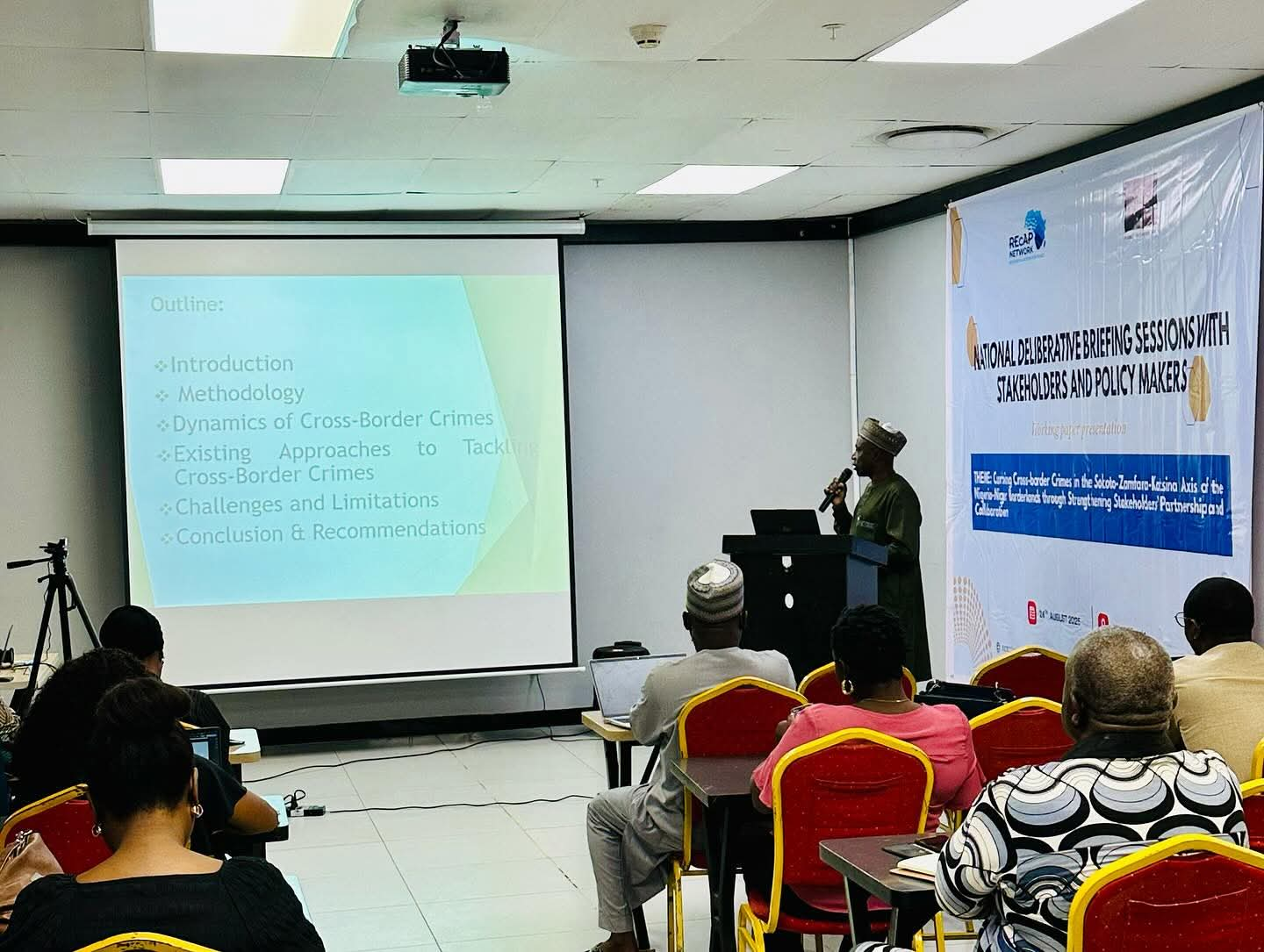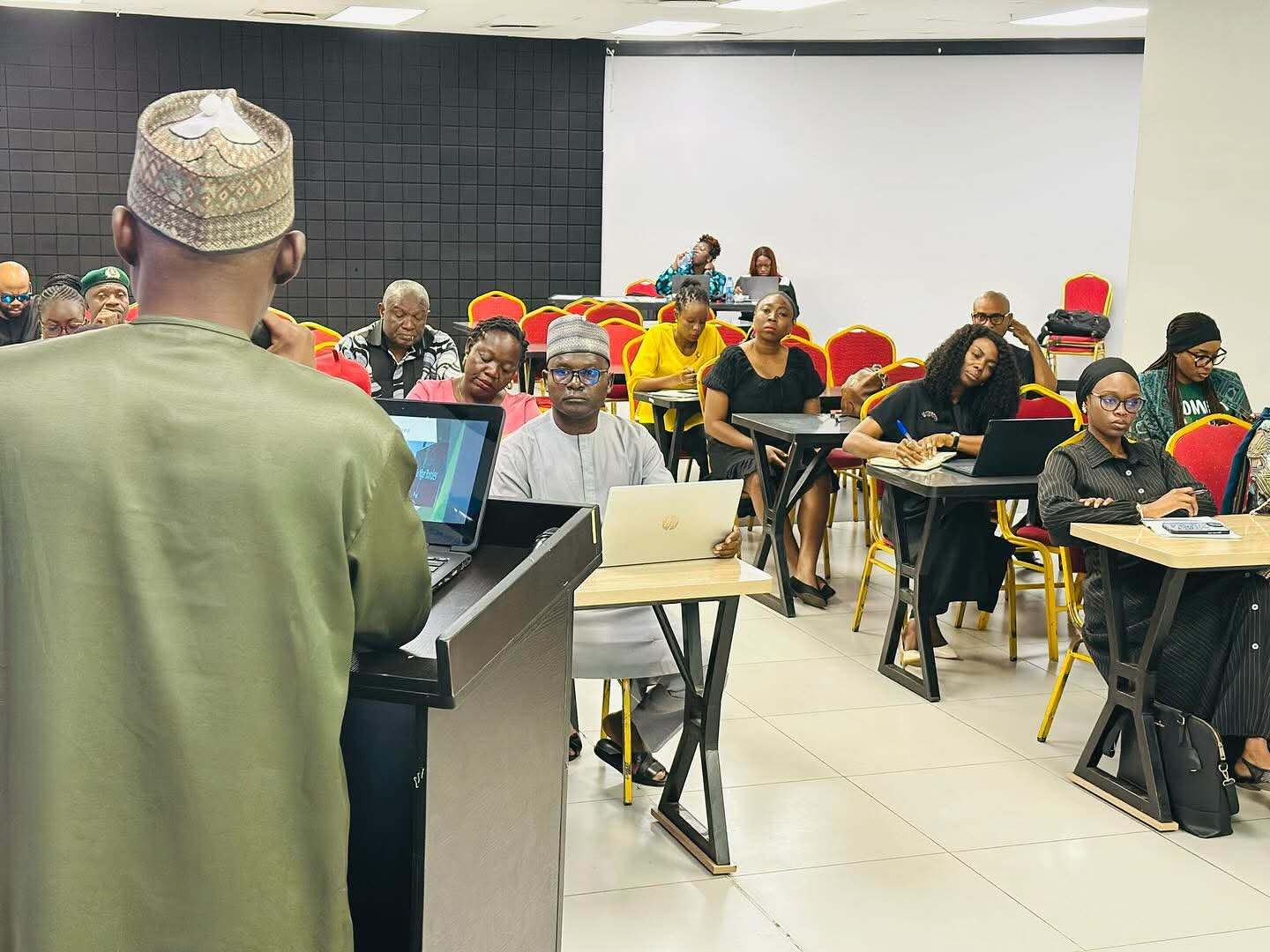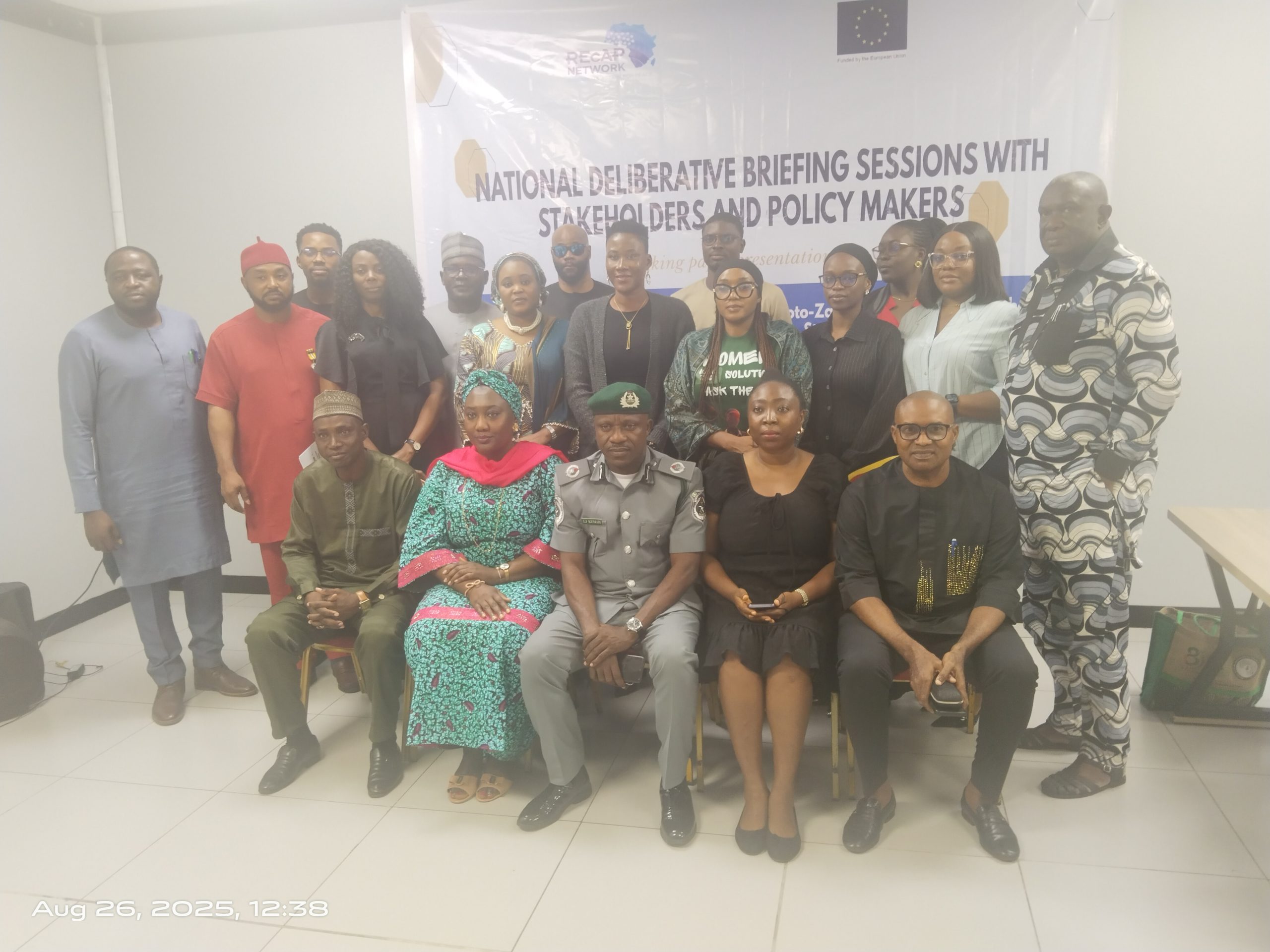Maureen Okpe
As insecurity continues to escalate across the Sokoto-Zamfara-Katsina axis, key stakeholders and experts have raised urgent calls for enhanced border control, improved government commitment, and stronger collaboration among civil society organizations (CSOs), government agencies, and local communities to address the rising tide of cross-border crimes.
The stakeholders made the call on Tuesday, at a national deliberative session organized by West Africa Network for Peacebuilding (WANEP), Research and Action for Peace (REcAP) Project, in collaboration with the Danish Refugee Council (DRC) and the Stockholm International Peace Research Institute (SIPRI), funded by the European Union with theme; ‘curbing cross border crimes in Sokoto-Zamfara- Katsina axis of Nigeria-Niger borderlands through strengthening stakeholders partnership and collaboration.’

Speaking at the deliberative session, the National Coordinator of the Trauma Awareness and Resilience Initiative,Onyekwue Francis highlighted the lack of government will to curb the crisis, adding, the legacy of colonial border demarcations as a root cause of current security challenges.
Read Also: WANEP harps on need to invest in peacebuilding
According to Francis, “The borders were drawn by colonial masters without regard for ethnic and linguistic realities.
“For example, Hausa is a common language across both sides of the Nigeria-Niger border, yet the porous borders have facilitated arms smuggling, especially from the Sahel region and Libya crisis.”
Francis urged the government to prioritize real border control over mere border posts, emphasizing the need for technology-driven surveillance to curb the influx of illegal arms and militants.
He also pointed to environmental factors worsening the conflict stating,“climate change has pushed pastoralists into new territories, fueling clashes over resources. Countries like Libya and Burkina Faso have turned dry land into vegetation. “What stops Nigeria from doing the same in the northern regions to reduce cattle migration and conflict?
Abubakar Suma’ila from the Usman Danfodiyo University in his presentation of the working paper titled ‘curbing cross-border crimes in the Sokoto-Zamfara- Katsina axis of Nigeria-Niger borderlands through the strengthening stakeholders partnership and collaboration,’ traced the historical role of the axis as a commercial and cultural hub linking Sahel countries before colonial partition.
He however disclosed that, post-colonial governments have struggled to maintain border policies designed to contain pastoralist movements and criminal infiltration.
Delivering the presentation, Suma’ila submitted that, “Cross-border crimes have transformed over time as Armed groups now target civilians more than government forces, with networks linked to illegal arms smuggling and banditry spreading rapidly.Ethnicization of the conflict is a dangerous myth not supported by evidence. We see that many criminal elements operate across communities regardless of ethnicity.”

He stressed the importance of coordinated intelligence-sharing and multi-stakeholder partnerships to combat these complex challenges.
Also, Assistant Comptroller of Customs Kumah LJ emphasized the need for building trust with border communities, stating, “Cross-border insecurity is a national issue and cannot be solved overnight.
“Security personnel must work closely with indigenous communities to gather frontline intelligence, which goes beyond surface information. Agencies must collaborate and share intelligence for effective security operations.”
Programme Manager, WANEP Abuja, Manji Mangrock highlighted the critical role of CSOs in gathering raw data and supporting security agencies through research and advocacy which the REcAP project set to achieve.
Mangrock called on stakeholders to strengthen partnership and avoid duplication of efforts to maximize impact.
Read Also: WANEP advocates implementation, localisation of UN resolution
Speaking on the issue of information and intelligence, he explained that, “we as CSOs deal mostly with information, and this is about harvesting raw data, interpreting it through triangulation and giving it a meaning.
“For security personnel they deal more on intelligence and intelligence basically deal with information, interpretation and analysis. It is the same process,an ends to a means, depending on the perspective, two sides of the same coin.”
For her part, Jennifer Alaeda, Principal Relief Officer, National Emergency Management Agency, underscored the importance of youth inclusion through education and advocacy in breaking the cycle of insecurity.
She further stressed the need to share research challenges to better prepare others tackling similar issues.

